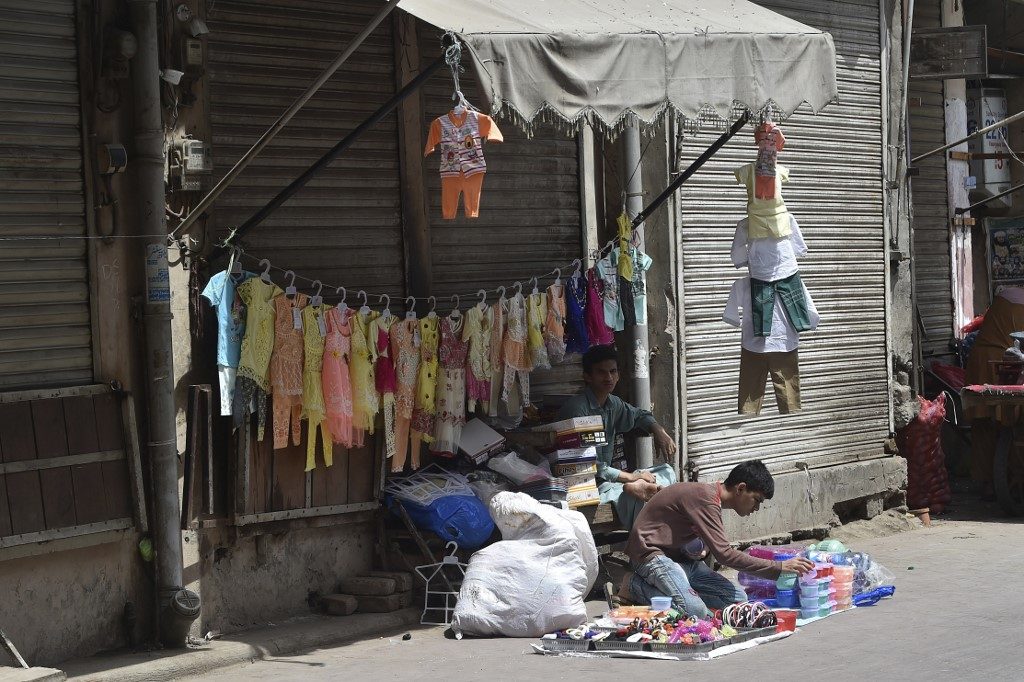SUMMARY
This is AI generated summarization, which may have errors. For context, always refer to the full article.

GENEVA, Switzerland – Nearly half of the entire global workforce is in immediate danger of having their livelihoods destroyed by the coronavirus pandemic, the International Labour Organization (ILO) warned on Wednesday, April 29.
The ILO said the risk fell on those workers in the informal economy, and three-quarters of them, some 1.6 billion people were at risk in the 2nd quarter of 2020.
The United Nations agency said an expected further sharp decline in working hours, due to the COVID-19 crisis, meant that those workers were in “immediate danger of having their livelihoods destroyed.”
In its 3rd report on the coronavirus crisis and the world of work, the ILO warned of the impact on the most vulnerable in the labor market, who are often in the hardest-hit sectors.
The 1.6 billion people stand in line to suffer “massive damage to their ability to earn a living,” said ILO Director-General Guy Ryder.
The ILO said the global workforce was 3.3 billion people, of which more than 2 billion worked in the informal economy – in jobs characterized by a lack of basic protections, no possibility to work from home, and no income replacement during the lockdown.
No income, no food
“Staying home means losing their jobs, and without wages, they cannot eat,” the report said.
It said that almost 1.6 billion informal economy workers, accounting for 76% of informal employment worldwide, were significantly impacted by lockdown measures imposed to combat the spread of the virus, “and/or working in the hardest-hit sectors.”
More than 95% of them are working in units of fewer than 10 workers.
The ILO said the worst-affected sectors would be accommodation and food services, manufacturing, wholesale and retail trade, and real estate and business activities.
“As the pandemic and the jobs crisis evolve, the need to protect the most vulnerable becomes even more urgent,” said Ryder.
“For millions of workers, no income means no food, no security, and no future.”
Working hours plunge
The ILO said the crisis was causing an unprecedented reduction in economic activity and working time.
It estimates that global working hours declined by 4.5% in the 1st quarter of 2020, compared with the last 3 months of 2019.
Global working hours in the 2nd quarter of 2020 are expected to be 10.5% lower than in the last pre-crisis quarter, due to the extension of lockdowns.
The ILO said this was the equivalent to 305 million full-time jobs, representing a major deterioration on a previous 2nd quarter estimate of 195 million.
It said the Americas (down 12.4%), followed by Europe and central Asia (down 11.8% each) would be the regions losing the most working hours over the 2nd quarter.
“We all have to think of the human suffering, the human need that stands behind that extraordinary figure,” said Ryder.
The ILO found the proportion of workers living in countries with recommended or mandatory workplace closures has decreased from 81% to 68% over the last two weeks – mainly driven by the lifting of workplace shutdowns in China.
However, the situation has worsened elsewhere, with workplace closure measures increasing. – Rappler.com
Add a comment
How does this make you feel?
There are no comments yet. Add your comment to start the conversation.